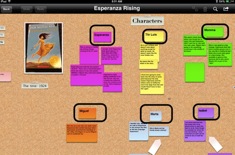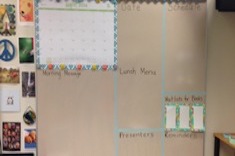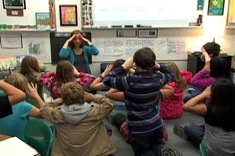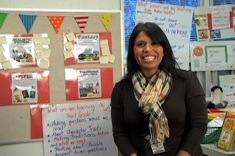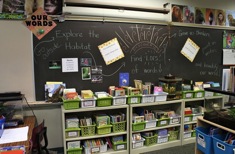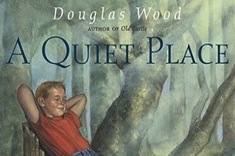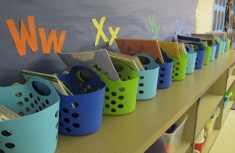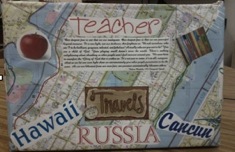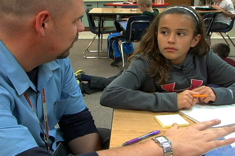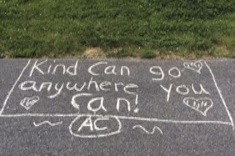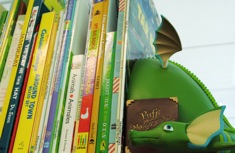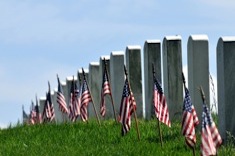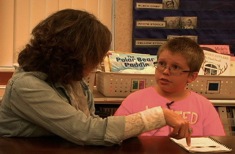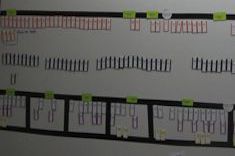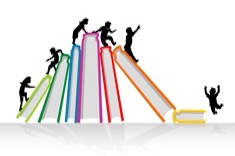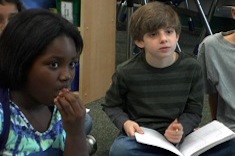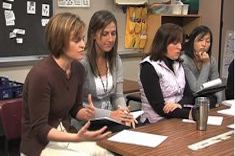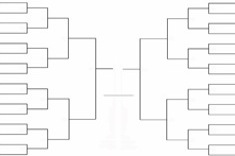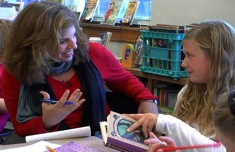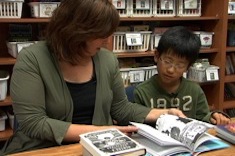4th
Latest Content
Digital Boards for Formative Assessment
Katharine Hale has moved much of her reading response to digital boards, which are also a useful tool for formative assessment.
Community Board: Invitations to Independence
Students transition between home and school with the Community Board in Andrea Smith’s classroom. It’s a lively bulletin board that is updated and discussed daily in her fourth-grade classroom.
Independence in Writing Workshop
Beth Lawson uses an LCD, whiteboard, and magnetic clips in a clever way during the transition from minilessons to independent writing in writing workshop. Students tag whether they will be working on drafts or conferring with peers as Beth completes her status of the class on the board.
A Classroom for Elementary English Language Learners
Stella Villalba gives a tour of her classroom library and publishing corner designed to support the grades 1-5 English language learners she works with daily.
Helping Allison Redesign Her Classroom Nonfiction Library
Andrea Smith shares her best advice for library design that celebrates nonfiction as much as fiction.
A Strong Foundation: Books and Media for Launching Literacy Workshops
Help students transition back to school with minilessons that give children a strong sense of the purpose of literacy workshops.
Effective Organization
Ruth Ayres has tips for organizing desks, tables, chairs, and materials to support literacy learning.
Shoebox Autobiographies
Susan Dee uses shoebox autobiographies to build community and relationships with students early in the fall.
Revising Writing: Fourth-Grade Conference
Tony Keefer confers with fourth grader Sydney about revising her writing and transitioning to a new genre early in the year.
Six-Word Memoirs
Gigi McAllister finds the ever-popular six-word memoirs are a wonderful way to build community and help students get to know each other.
Using Summer Reading as Bookends for the School Year
Karen Terlecky has advice for using summer reading for launching and closing the school year to build community and enduring connections with students.
The Information Board: Celebrating Nonfiction Every Day
Andrea Smith builds interest in nonfiction in her fourth-grade classroom community through her constantly changing Information Board.
A Booklist for Memorial Day
Sarah Klim’s latest booklist includes titles for honoring those who serve on Memorial Day.
Conveying Messages with Cover Art
Ruth Ayres confers with fourth grader Braden about the importance of inviting cover art for the book he's written about a vacation.
The Data Wall Debacle
Shari Frost has a suggestion for what shouldn’t be on classroom walls: student assessment scores. She explains why this practice can be harmful to students.
Understanding the Summer Slide: Sharing Data with Parents and Students
Clare Landrigan and Tammy Mulligan explain why it is important to share data with parents while school is still in session in order to avoid the summer slide. This is another installment in their summer reading series.
Getting Ready for Summer Reading: A Lesson Cycle
Franki Sibberson designs a lesson cycle to prepare students for summer reading.
Reading Through Spring
Gigi McAllister has many suggestions for a strong reading finish to the school year.
Celebrating Screen-Free Week (BOOKLIST)
Screen-Free Week is scheduled for May 5-11 this year. Here are some book suggestions to help you explore the issue with students.
A Booklist for Earth Day
Earth Day is celebrated on April 22. Sarah Klim presents some favorite titles to share with students and build awareness in this booklist.
Manipulating Time: Fourth-Grade Writing Minilesson
Tony Keefer uses his writing as a mentor text in this fourth-grade minilesson on manipulating time in personal narratives.
Mentor Reader: Words
Gigi McAllister writes about a quick activity for modeling word learning and fostering discussion of new vocabulary.
Owl Research Word Study
Andrea Smith leads a whole-class discussion of recording new content vocabulary in reading notebooks.
Word Observations
Max Brand describes how word observations can work as powerful minilessons in elementary classrooms.
Simplifying Word Study
Max Brand has suggestions for simplifying word study.
Bracketology
Mary Lee Hahn uses bracketology to help her fifth-grade students explore determining importance in short texts and close reading.
Conferring About Lemony Snicket and Vocabulary
Aimee Buckner confers with fourth grader Samantha about reading a series and tackling challenging vocabulary at the same time in this brief video.
Sentence Combining in Workshops
Heather Rader has strategies for using sentence combining in literacy workshops.
More Sophisticated Mysteries: Conferring with Yuki
Franki Sibberson confers with fourth grader Yuki to expand his reading options into more complex series and mysteries.
A Tool Worth Exploring: Sentence Combining
Heather Rader begins a new series on sentence combining, an alternative to traditional drill and kill grammar instruction.
Browse Content By
Type
Category
- Assessment Tools
- Big Fresh Archives
- Booklists
- Choice Numeracy
- Classroom Design
- Common Core
- Community Building
- Conferring
- Content Literacy
- Digital Literacy
- English Language Learners
- Equity
- Family Relations
- Free Samples
- Guiding Groups
- Leadership
- Literacy Coaches
- Mentor Texts
- Minilessons
- New Teacher Mentors
- Podcasts
- Poetry
- Quote Collections
- Reading Strategies
- Self Care
- Struggling and Striving Learners
- Talking and Listening
- Teacher Study Groups
- Teaching Reading
- Teaching Writing
- Word Study and Vocabulary
Author
- Melissa Quimby
- Nawal Qarooni
- Gwen Blumberg
- Julie Cox
- The Lead Learners
- Hannah Tills
- Josie Stewart
- Ruth Metcalfe
- Mallory Messenger
- Becca Burk
- Jodie Bailey
- Vivian Chen
- Mary Brower
- Tiffany Abbott Fuller
- Stephanie Affinito
- Ruth Ayres
- Leigh Anne Eck
- Heather Fisher
- Shari Frost
- Julie Johnson
- Suzy Kaback
- Gigi McAllister
- Shirl McPhillips
- Melanie Meehan
- Cathy Mere
- Debbie Miller
- Tara Barnett and Kate Mills
- Tammy Mulligan
- Dana Murphy
- Bitsy Parks
- David Pittman
- Brenda Power
- Heather Rader
- Matt Renwick
- Mandy Robek
- Christy Rush-Levine
- Gretchen Schroeder
- Jen Schwanke
- Brian Sepe
- Katherine Sokolowski
- Stella Villalba
- Jennifer Vincent
Grade Level
Choice Literacy Membership
Articles
Get full access to all Choice Literacy article content
Videos
Get full access to all Choice Literacy video content
Courses
Access Choice Literacy course curriculum and training

